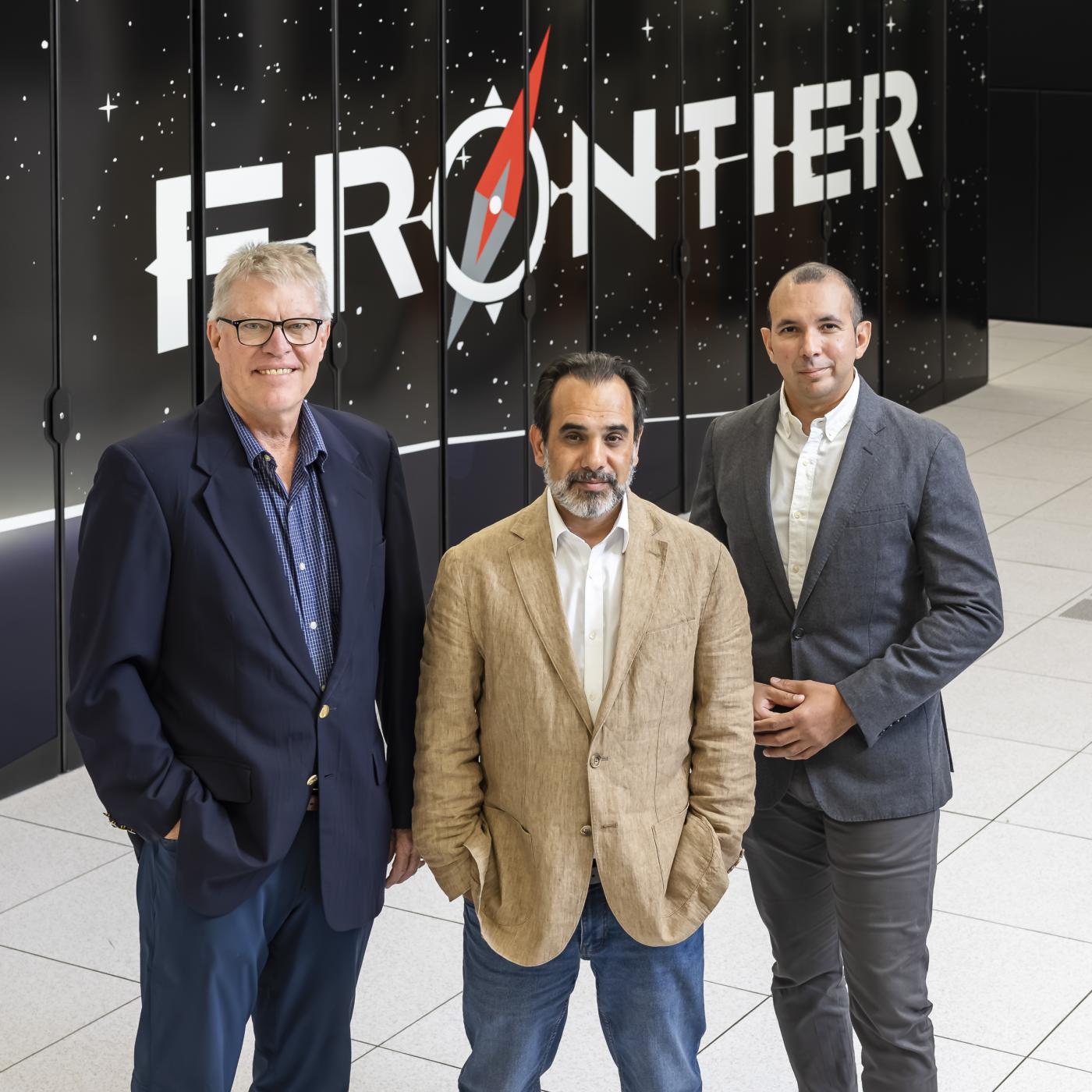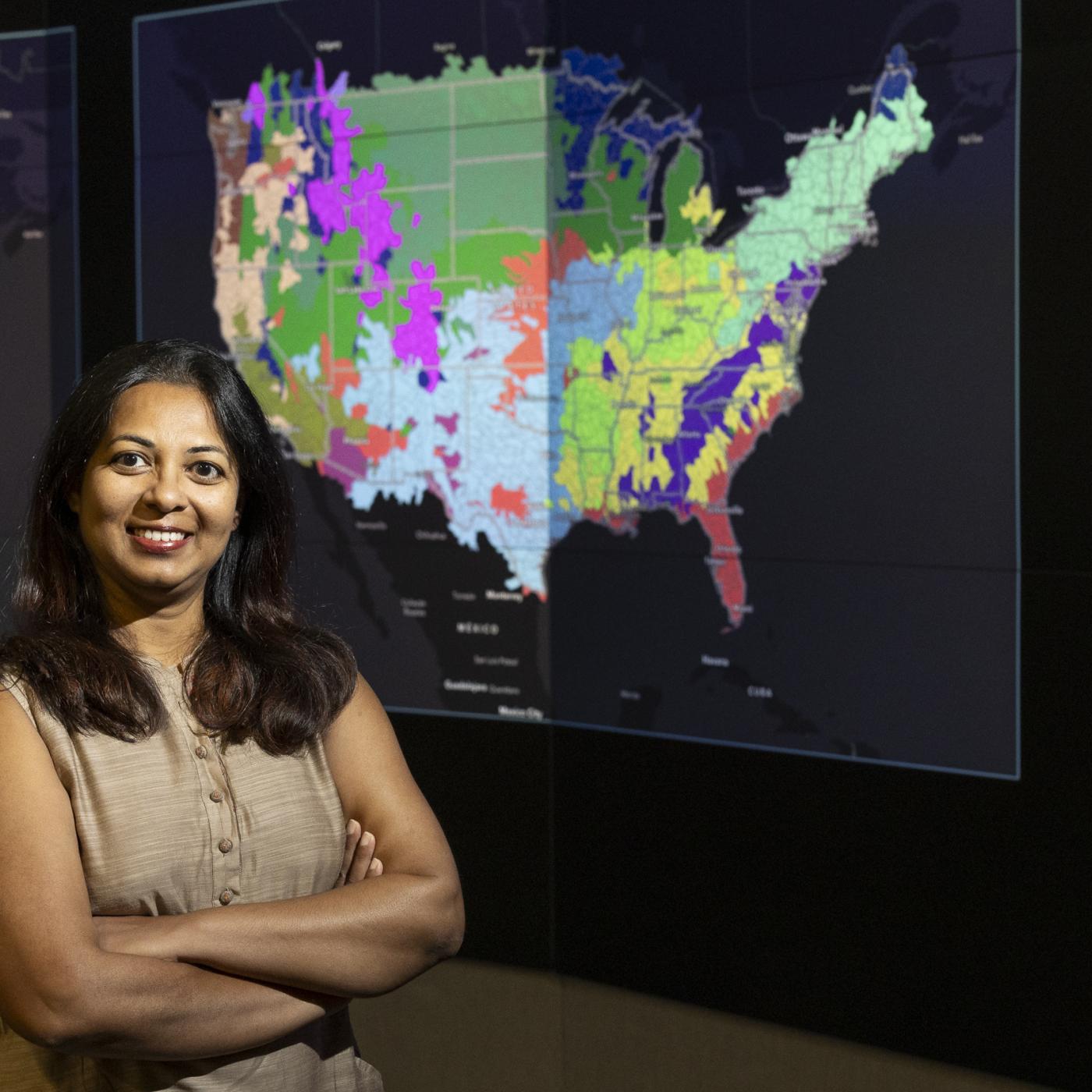
Filter News
Area of Research
News Type
News Topics
- (-) Quantum Science (35)
- 3-D Printing/Advanced Manufacturing (59)
- Advanced Reactors (13)
- Artificial Intelligence (57)
- Big Data (33)
- Bioenergy (57)
- Biology (66)
- Biomedical (34)
- Biotechnology (12)
- Buildings (26)
- Chemical Sciences (38)
- Clean Water (15)
- Climate Change (59)
- Composites (12)
- Computer Science (103)
- Coronavirus (21)
- Critical Materials (6)
- Cybersecurity (20)
- Decarbonization (49)
- Education (1)
- Emergency (2)
- Energy Storage (45)
- Environment (119)
- Exascale Computing (29)
- Fossil Energy (4)
- Frontier (28)
- Fusion (40)
- Grid (29)
- High-Performance Computing (57)
- Hydropower (5)
- Irradiation (1)
- Isotopes (37)
- ITER (3)
- Machine Learning (24)
- Materials (75)
- Materials Science (67)
- Mathematics (7)
- Mercury (7)
- Microelectronics (3)
- Microscopy (28)
- Molten Salt (2)
- Nanotechnology (28)
- National Security (52)
- Net Zero (9)
- Neutron Science (61)
- Nuclear Energy (69)
- Partnerships (25)
- Physics (36)
- Polymers (13)
- Quantum Computing (24)
- Renewable Energy (1)
- Security (15)
- Simulation (36)
- Software (1)
- Space Exploration (13)
- Statistics (1)
- Summit (33)
- Sustainable Energy (56)
- Transformational Challenge Reactor (4)
- Transportation (37)
Media Contacts

A team that included researchers at ORNL used a new twist on an old method to detect materials at some of the smallest amounts yet recorded. The results could lead to enhancements in security technology and aid the development of quantum sensors.
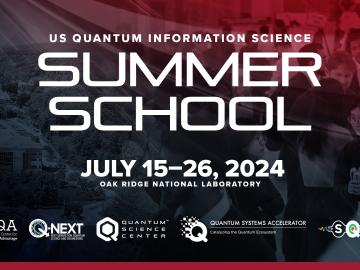
From July 15 to 26, 2024, the Department of Energy’s Oak Ridge National Laboratory will host the second U.S. Quantum Information Science, or QIS, Summer School.
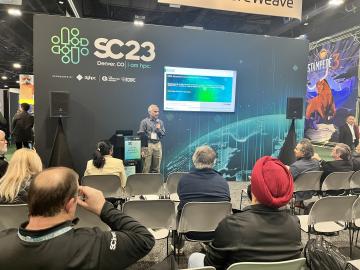
ORNL’s successes in QIS and its forward-looking strategy were recently recognized in the form of three funding awards that will help ensure the laboratory remains a leader in advancing quantum computers and networks.
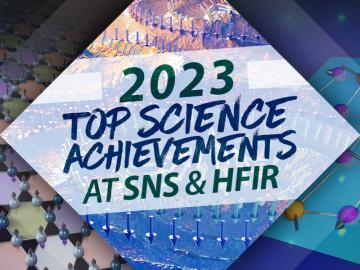
The 2023 top science achievements from HFIR and SNS feature a broad range of materials research published in high impact journals such as Nature and Advanced Materials.
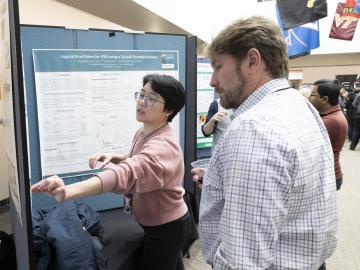
On Nov. 1, about 250 employees at Oak Ridge National Laboratory gathered in person and online for Quantum on the Quad, an event designed to collect input for a quantum roadmap currently in development. This document will guide the laboratory's efforts in quantum science and technology, including strategies for expanding its expertise to all facets of the field.
For the third year in a row, the Quantum Science Center held its signature workforce development event: a comprehensive summer school for students and early-career scientists designed to facilitate conversations and hands-on activities related to
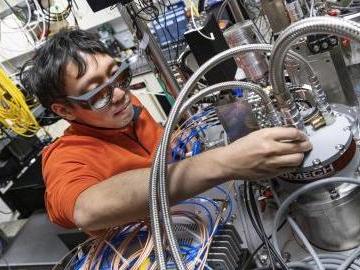
Five National Quantum Information Science Research Centers are leveraging the behavior of nature at the smallest scales to develop technologies for science’s most complex problems.
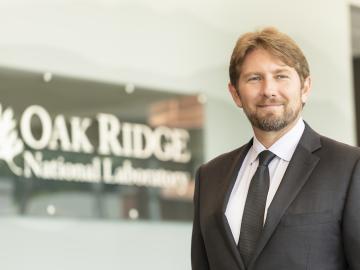
Travis Humble has been named director of the Quantum Science Center headquartered at ORNL. The QSC is a multi-institutional partnership that spans industry, academia and government institutions and is tasked with uncovering the full potential of quantum materials, sensors and algorithms.
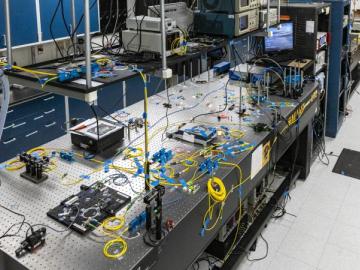
A rapidly emerging consensus in the scientific community predicts the future will be defined by humanity’s ability to exploit the laws of quantum mechanics.
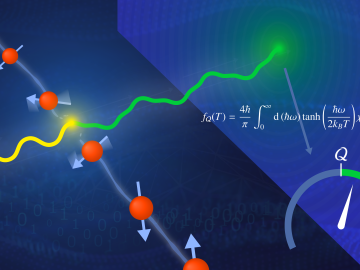
A team led by the U.S. Department of Energy’s Oak Ridge National Laboratory demonstrated the viability of a “quantum entanglement witness” capable of proving the presence of entanglement between magnetic particles, or spins, in a quantum material.


